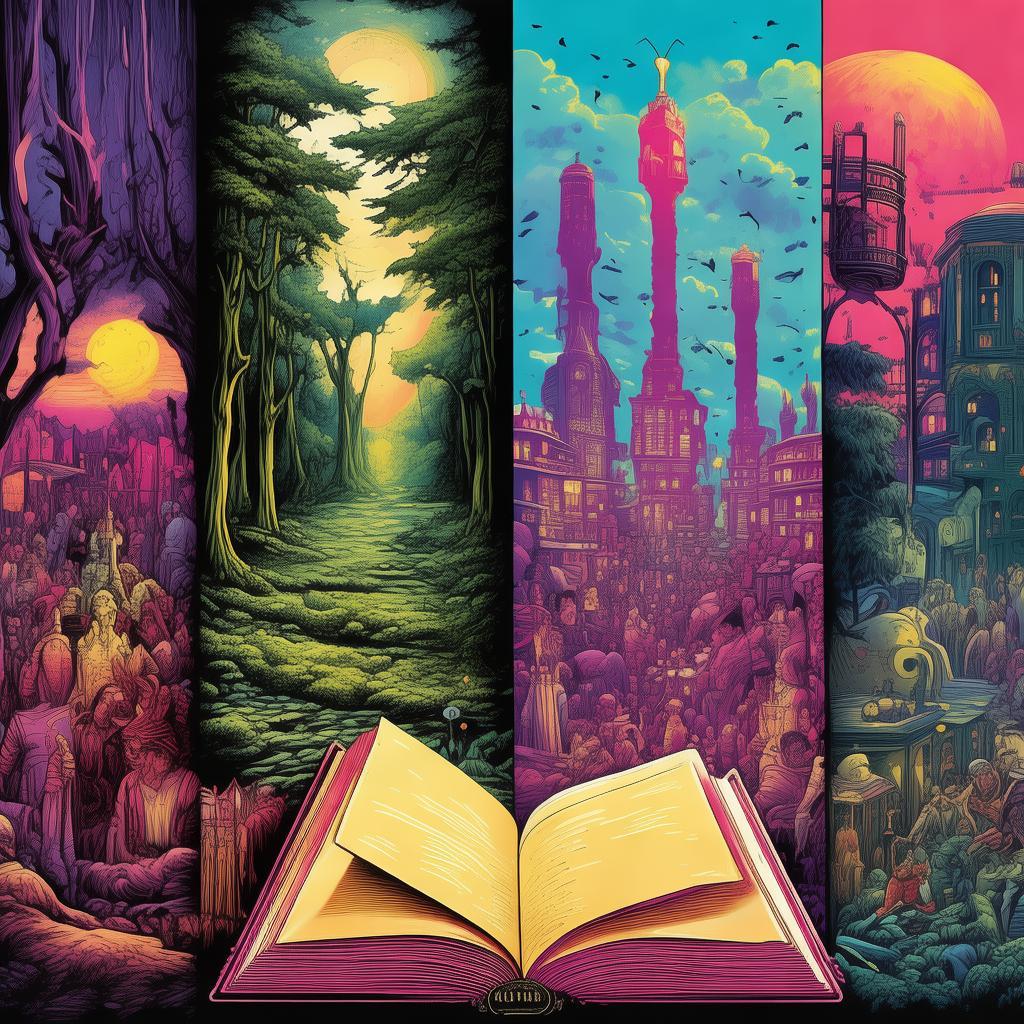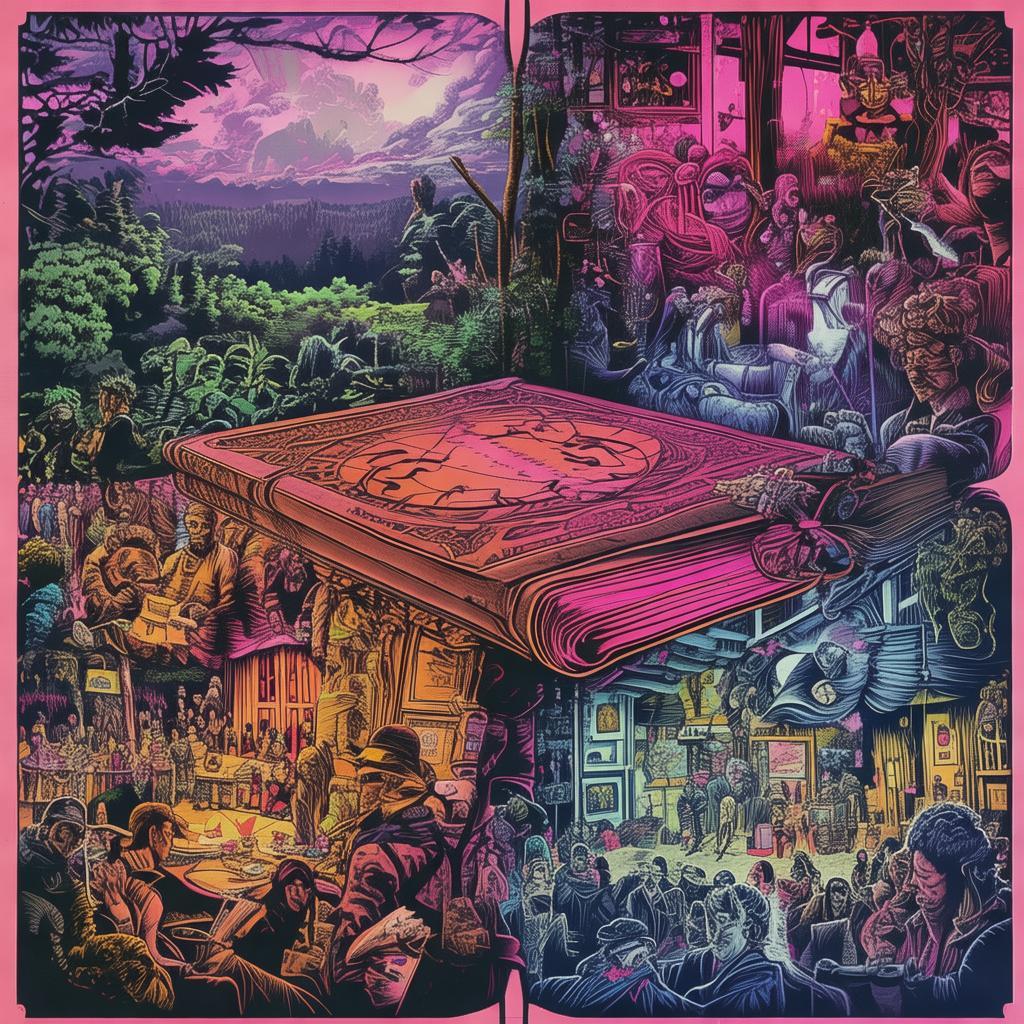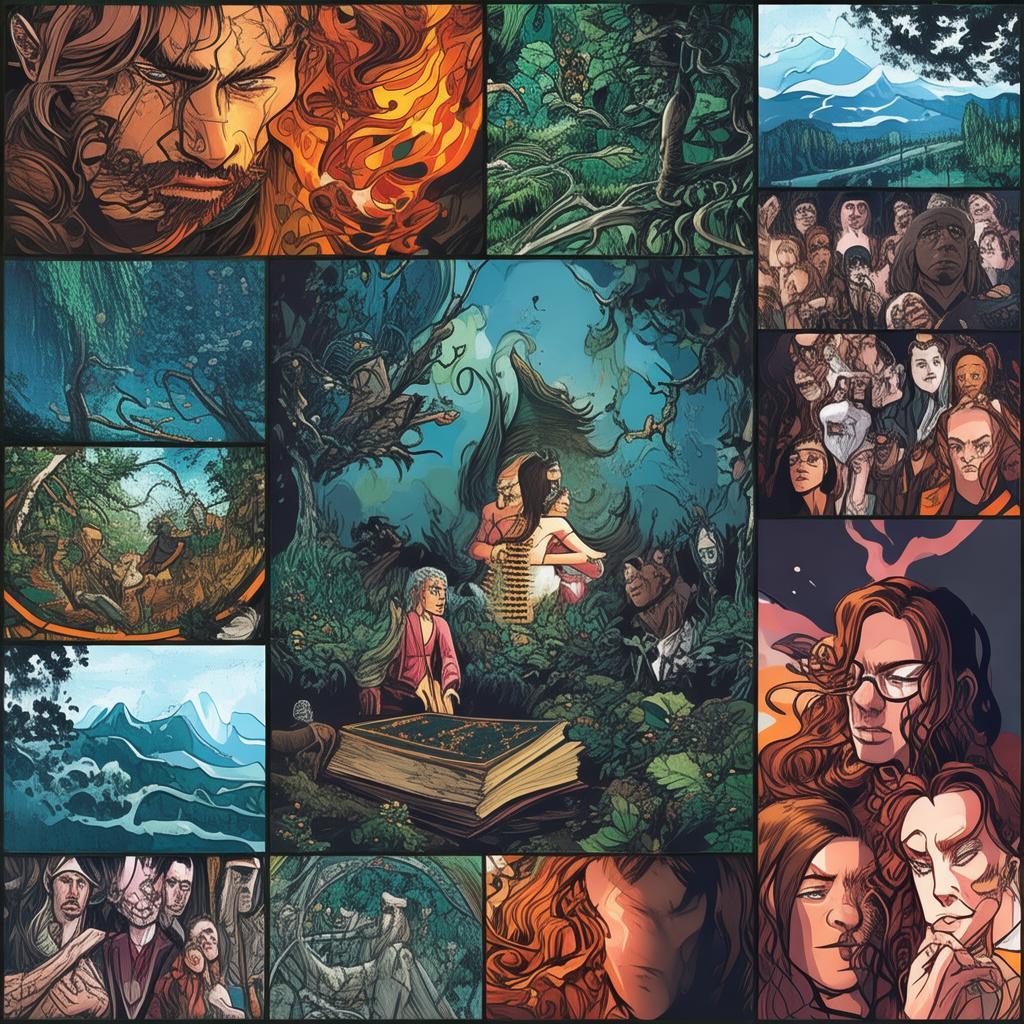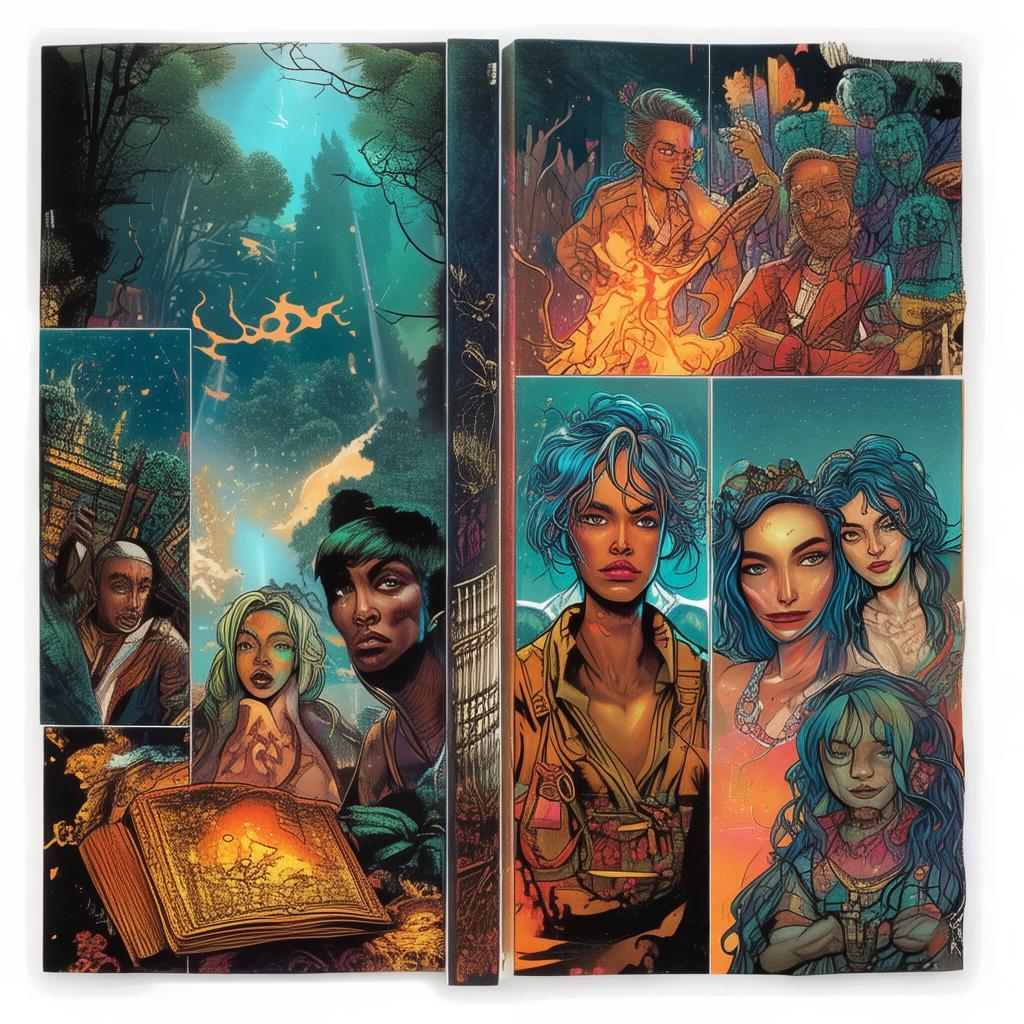The English Classroom's Whimsical Adventure
The bell tolled, a familiar chime that signaled the end of another uneventful school day. The English classroom was a sea of disinterest, where the usual hum of teenage apathy filled the air. The desks were strewn with crumpled papers, the walls adorned with faded posters of Shakespeare and Chaucer. At the front of the room, Miss Evelyn Hargrove stood, her eyes scanning the room with a mix of exasperation and affection.
"Class," she began, her voice a gentle lilt that contradicted her stern appearance, "today, we will take a journey unlike any other. We will travel through time, using the power of language."
The students exchanged confused glances. Time travel? In English class? It seemed too fantastical, too whimsical for their mundane lives. But Miss Hargrove's eyes were alight with a passion that was as infectious as it was unexpected.
She pulled a peculiar device from her desk—a small, ornate box with a clock face and a lever. "This," she said, "is the ChronoLexicon. It allows us to traverse the annals of time through the written word."
As she activated the device, a soft hum filled the room. The walls began to shimmer, and before the students' eyes, the classroom transformed into a grand library, filled with towering bookshelves and flickering torches.
"Welcome to the English Classroom's Whimsical Adventure," Miss Hargrove announced, her voice filled with excitement. "Today, we will embark on a journey that will change the way you look at language forever."
The students, despite their initial skepticism, found themselves captivated. One by one, they stepped forward, their hands trembling as they reached out to the pages of ancient tomes. The first student chose a book on the Renaissance, and with a turn of the lever, they were whisked away to a grand hall, where Shakespeare himself was in the midst of writing "Romeo and Juliet."
The next student selected a book on the Victorian era, and they found themselves in a foggy London street, where the clatter of horse-drawn carriages echoed through the cobblestones. They watched as Charles Dickens, with a quill in hand, crafted the stories that would become beloved classics.
As the days passed, the students continued their journey through time, each one chosen to learn from the greats of English literature. They conversed with Chaucer, debated with Austen, and even argued with Orwell about the nature of truth.
But it wasn't just the historical figures that left an impression on the students. It was the bond that began to form among them. They were no longer the strangers who had entered Miss Hargrove's classroom on the first day of school. They were friends, united by their shared experience and the realization that language had the power to bridge the gap between time and place.
One day, as they were exploring a book on the Middle Ages, a sudden realization struck the students. The book they were reading was a copy of Chaucer's "The Canterbury Tales." One of the students, Sarah, had chosen to read it, and as they immersed themselves in the text, they discovered a hidden message within the lines.
"We must protect the language," the message read. "It is the key to understanding the past, and the future."
Sarah's eyes widened. "What do you think it means?" she asked, looking around at her friends.
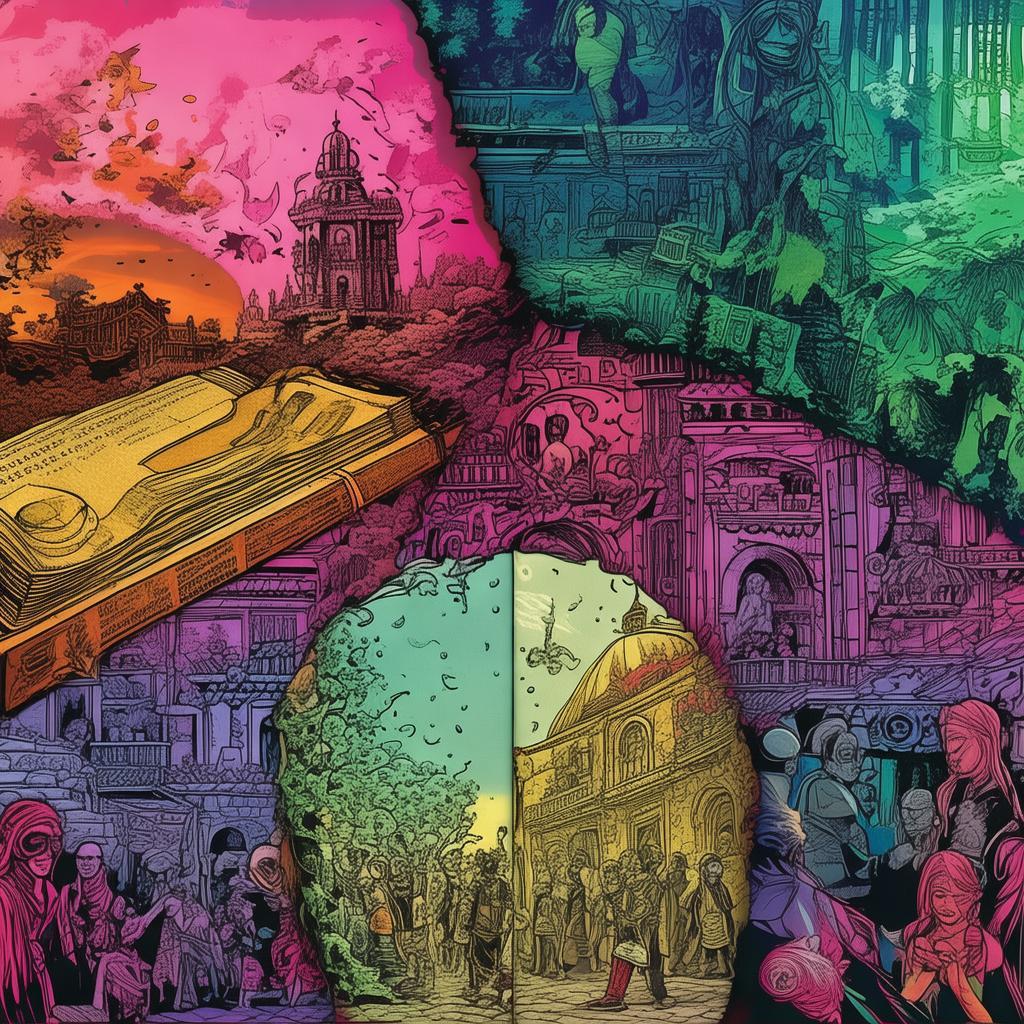
"It means we have a responsibility," said Michael, who had been reading a book on the Cold War. "We have to keep the language alive, to ensure that future generations can appreciate the beauty and power of English."
As they delved deeper into their studies, they began to notice the language around them changing. The archaic phrases they had learned from Chaucer began to appear in modern songs, films, and literature. The students felt a sense of pride, knowing that they were a part of something much larger than themselves.
One evening, as they gathered in the library, Miss Hargrove approached them. "I have been watching you," she said, her eyes twinkling with pride. "You have learned more than just language today. You have learned about friendship, about responsibility, and about the power of change."
The students looked at each other, their faces filled with a mixture of awe and gratitude. They had embarked on a whimsical adventure, but it had taught them lessons that would stay with them forever.
As the ChronoLexicon began to hum once more, the students knew that their journey was far from over. They had a new mission, one that would carry on long after Miss Hargrove had returned to her own time.
"We must carry on the legacy," said Sarah, her voice filled with determination. "We must use our language to inspire others, to teach them that the past is a teacher, and the future is a canvas waiting to be painted."
With a final glance at the library that had become their second home, the students stepped back into their own time. The walls of the classroom returned to their original form, but the students were different. They were now a group of teenagers with a shared understanding of the world and a newfound appreciation for the magic of language.
Miss Hargrove watched them leave, her heart swelling with pride. She knew that the English Classroom's Whimsical Adventure had not only changed her students' lives but had also given her a new purpose. As she activated the ChronoLexicon one last time, she whispered a silent promise to the students: "This journey has only just begun."
And with that, the door to the classroom closed, leaving behind a legacy of language, friendship, and the endless possibilities of the past and future.
✨ Original Statement ✨
All articles published on this website (including but not limited to text, images, videos, and other content) are original or authorized for reposting and are protected by relevant laws. Without the explicit written permission of this website, no individual or organization may copy, modify, repost, or use the content for commercial purposes.
If you need to quote or cooperate, please contact this site for authorization. We reserve the right to pursue legal responsibility for any unauthorized use.
Hereby declared.

